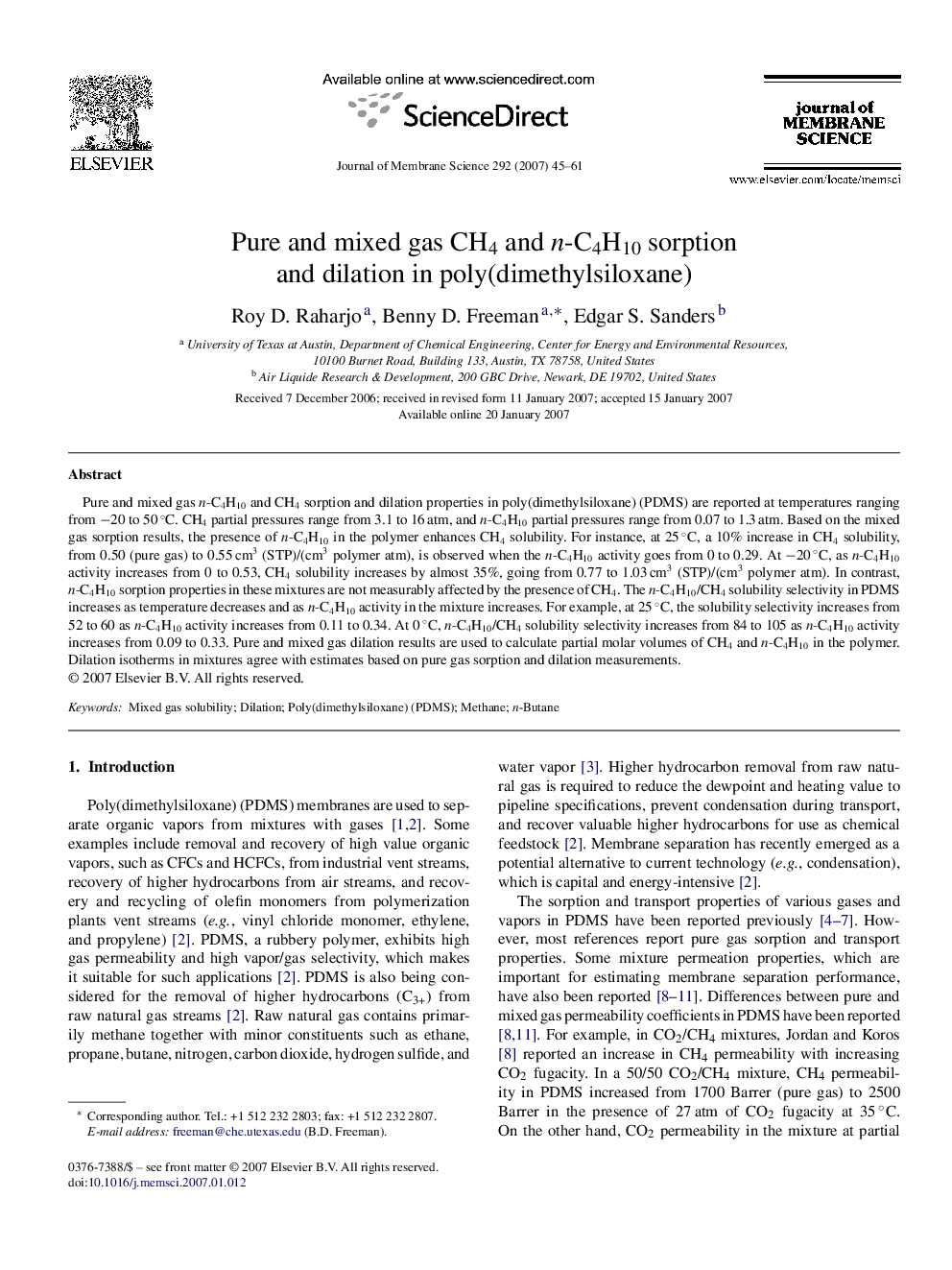| Article ID | Journal | Published Year | Pages | File Type |
|---|---|---|---|---|
| 638715 | Journal of Membrane Science | 2007 | 17 Pages |
Pure and mixed gas n-C4H10 and CH4 sorption and dilation properties in poly(dimethylsiloxane) (PDMS) are reported at temperatures ranging from −20 to 50 °C. CH4 partial pressures range from 3.1 to 16 atm, and n-C4H10 partial pressures range from 0.07 to 1.3 atm. Based on the mixed gas sorption results, the presence of n-C4H10 in the polymer enhances CH4 solubility. For instance, at 25 °C, a 10% increase in CH4 solubility, from 0.50 (pure gas) to 0.55 cm3 (STP)/(cm3 polymer atm), is observed when the n-C4H10 activity goes from 0 to 0.29. At −20 °C, as n-C4H10 activity increases from 0 to 0.53, CH4 solubility increases by almost 35%, going from 0.77 to 1.03 cm3 (STP)/(cm3 polymer atm). In contrast, n-C4H10 sorption properties in these mixtures are not measurably affected by the presence of CH4. The n-C4H10/CH4 solubility selectivity in PDMS increases as temperature decreases and as n-C4H10 activity in the mixture increases. For example, at 25 °C, the solubility selectivity increases from 52 to 60 as n-C4H10 activity increases from 0.11 to 0.34. At 0 °C, n-C4H10/CH4 solubility selectivity increases from 84 to 105 as n-C4H10 activity increases from 0.09 to 0.33. Pure and mixed gas dilation results are used to calculate partial molar volumes of CH4 and n-C4H10 in the polymer. Dilation isotherms in mixtures agree with estimates based on pure gas sorption and dilation measurements.
